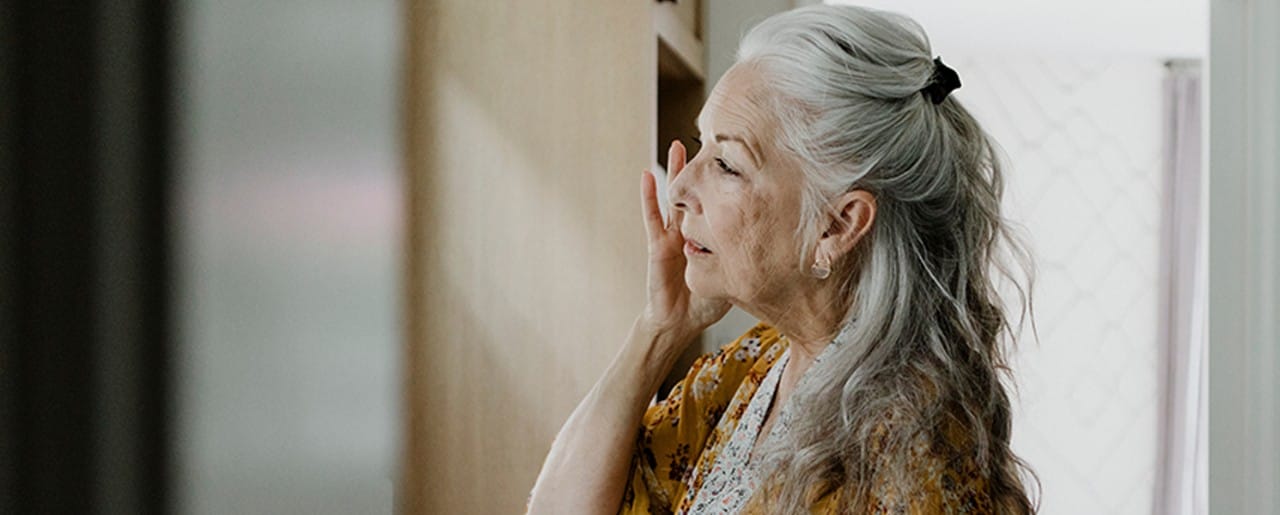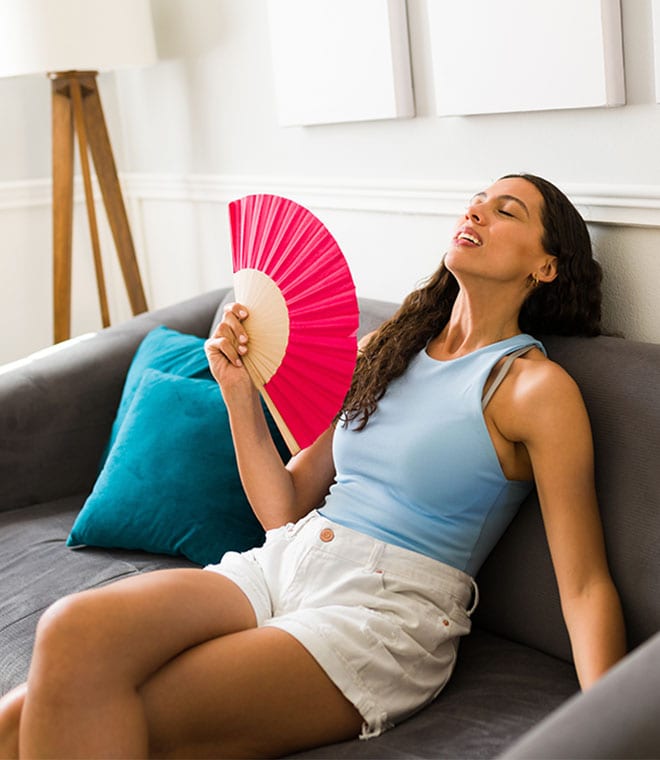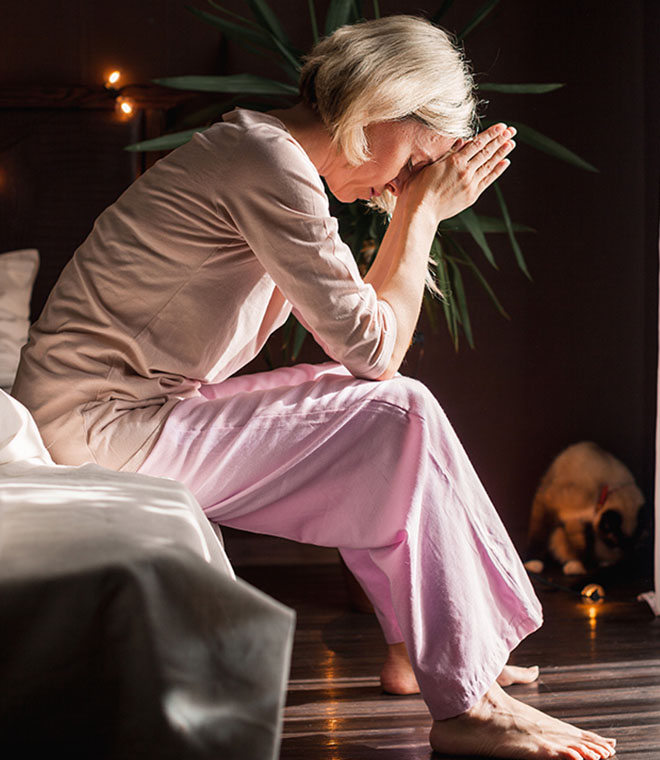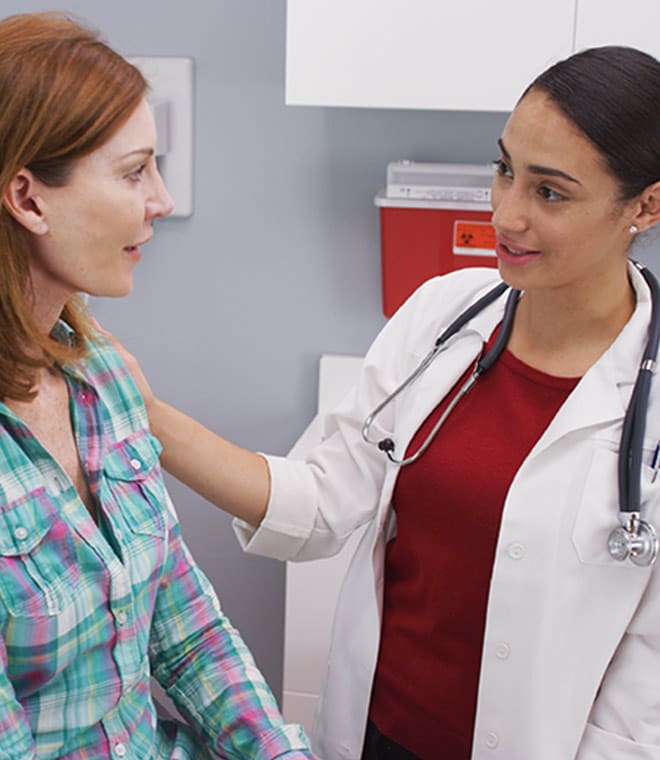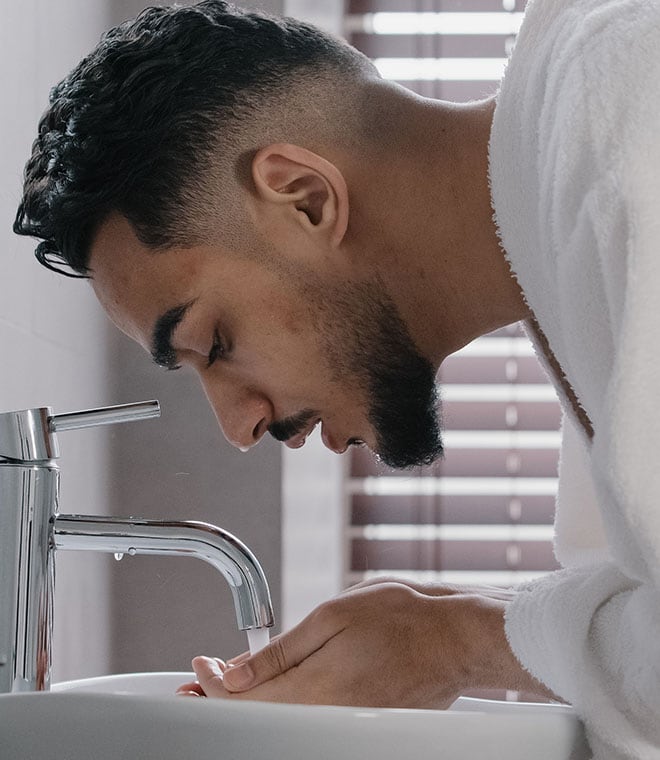Health
Acne from menopause: Causes, symptoms and treatment
By Anna H. Chacon, MD, Fellow of the American Academy of Dermatology Apr 14, 2025 • 7 min
Some symptoms associated with menopause are well known. You may develop hot flashes or night sweats. You may also experience changes in mood. However, breakouts during menopause may take you by surprise. While it's true that acne blemishes typically decrease with age, some women develop pimples for the first time or experience a resurgence before and during menopause. Fortunately, you can take steps to address menopause-related blemishes when they occur.
What causes acne during menopause?
During menopause, acne typically happens due to fluctuations in hormone levels. As estrogen levels decrease, the effects of male sex hormones called androgens increase. Androgens increase the production of sebum, the skin's natural oil.
Excess oil on the skin can mix with bacteria, dead skin and debris, leading to clogged pores. This can then result in dark bumps called blackheads, or white or yellowish bumps called whiteheads. If the immune system responds to the presence of clogs, inflammation can occur, leading to the formation of pimples.
Genetics may also play a role in adult acne. If a close family member experienced acne during menopause or throughout their life, you may be more likely to develop this skin issue.
One thing that scientists have ruled out as a cause of acne during menopause is diet. Consuming large amounts of chocolate and greasy foods may not be part of a healthy diet, but it’s unlikely to contribute to acne.
What does menopause-related acne look like?
Blemishes that develop during menopause resemble acne that can occur at other times in life. Blemishes can appear as black dots on the surface of the skin or raised bumps with a white head. Pimples are often red at the base and may be filled with pus. The surrounding skin may also become red if you have several breakouts side by side.
Menopausal acne often develops in the T-zone, which consists of the forehead, nose and chin. However, you can develop acne anywhere on your face, as well as on your chest, back, shoulders and scalp.
When do you get acne with menopause?
Many women may begin to experience acne in perimenopause, the period of time leading up to menopause. Perimenopause can last an average of four years. However, this phase can take place over a period of eight to 10 years prior to menopause. It can be as short as a few months prior to menopause in some women.
Perimenopausal acne may persist even after you haven’t had a menstrual period for a full year, which marks the beginning of menopause. Breakouts will typically gradually subside in the years following menopause, known as postmenopause.
What to do about menopause acne
For mild acne, a gentle daily skincare routine and self-care may be enough to support clearer skin.
Consider these tips for managing blemishes:
- Use a daily facial cleanser formulated for acne: Wash your face twice per day with a facial cleanser designed for acne. These products often contain benzoyl peroxide or salicylic acid. Benzoyl peroxide helps regulate oil levels on the skin while also fighting bacteria that contribute to developing acne. Salicylic acid supports clearer skin by lifting away dead cells that can clog pores.
When washing your face, use a gentle touch. Avoid using abrasive scrubs for cleansing, as these may irritate your skin and aggravate the acne. - Apply topical treatments: If you don’t see results from using an acne face wash alone, try using over-the-counter spot treatments. Typically, you apply these ointments, gels and creams directly to the blemishes and the surrounding skin once or twice daily.
Benzoyl peroxide and salicylic acid are common active ingredients in over-the-counter acne treatments. Adapalene is another popular over-the-counter acne spot treatment. This medication is called a retinoid, and it aids in the natural turnover of skin cells. Over time, retinoid may reduce pore blockages to help existing acne heal and reduce the risk of future breakouts. - Avoid the urge to pop and pick: Resist the temptation to pop or pick your pimples. Doing so will slow down the healing process and could result in scarring. Keep your hands away from areas where you have acne as much as possible while acne heals so you don’t deposit extra oils or debris.
- Monitor your skin’s condition: When trying new face washes and spot treatments, watch out for signs of dryness, like dullness, roughness, flaking and itching. Some over-the-counter acne skincare products may dehydrate your skin and actually make acne worse. If you notice symptoms of dry skin, discontinue use of your acne care products and consult your healthcare provider.
- Choose cosmetics and sunscreen carefully: Makeup can contribute to buildup in your pores, worsening perimenopausal and menopausal acne. Look for cosmetics that are noncomedogenic, meaning they don’t clog the pores.
Protecting your skin from the sun is important regardless of your age, so don’t stop applying your daily sunscreen due to blemishes. Instead, switch to an oil-free facial sunscreen to shield your skin from UV rays.
If acne that develops during perimenopause or menopause doesn’t clear up with at-home care, see your healthcare provider. They can recommend acne medication, such as additional over-the-counter products or prescription topical medications, to address breakouts. You can also talk to your healthcare provider about other menopause symptoms you’re experiencing as they can discuss the best options available that can help you feel and look your best through each stage of menopause.
Updated by Rebeca Thomas, RN, BSN, April 2025.
Sources:
- https://www.womenshealth.gov/a-z-topics/acne
- https://www.aad.org/public/diseases/acne/really-acne/adult-acne
- https://my.clevelandclinic.org/health/diseases/22468-pimples
- https://www.aad.org/public/everyday-care/skin-care-secrets/anti-aging/skin-care-during-menopause
- https://www.aad.org/news/2020-02-11-how-to-care-for-your-skin-during-menopause
- https://www.ncbi.nlm.nih.gov/books/NBK482509/
- https://www.mayoclinic.org/diseases-conditions/menopause/symptoms-causes/syc-20353397
- https://www.hopkinsmedicine.org/health/wellness-and-prevention/got-adult-acne-get-answers-from-an-expert
- https://www.mayoclinic.org/diseases-conditions/acne/symptoms-causes/syc-20368047
- https://www.womenshealth.gov/menopause/menopause-basics
- https://www.aad.org/public/diseases/acne/skin-care/tips
- https://www.aad.org/public/diseases/acne/diy/types-breakouts
- https://nyulangone.org/conditions/acne/treatments/topical-medications-for-acne
